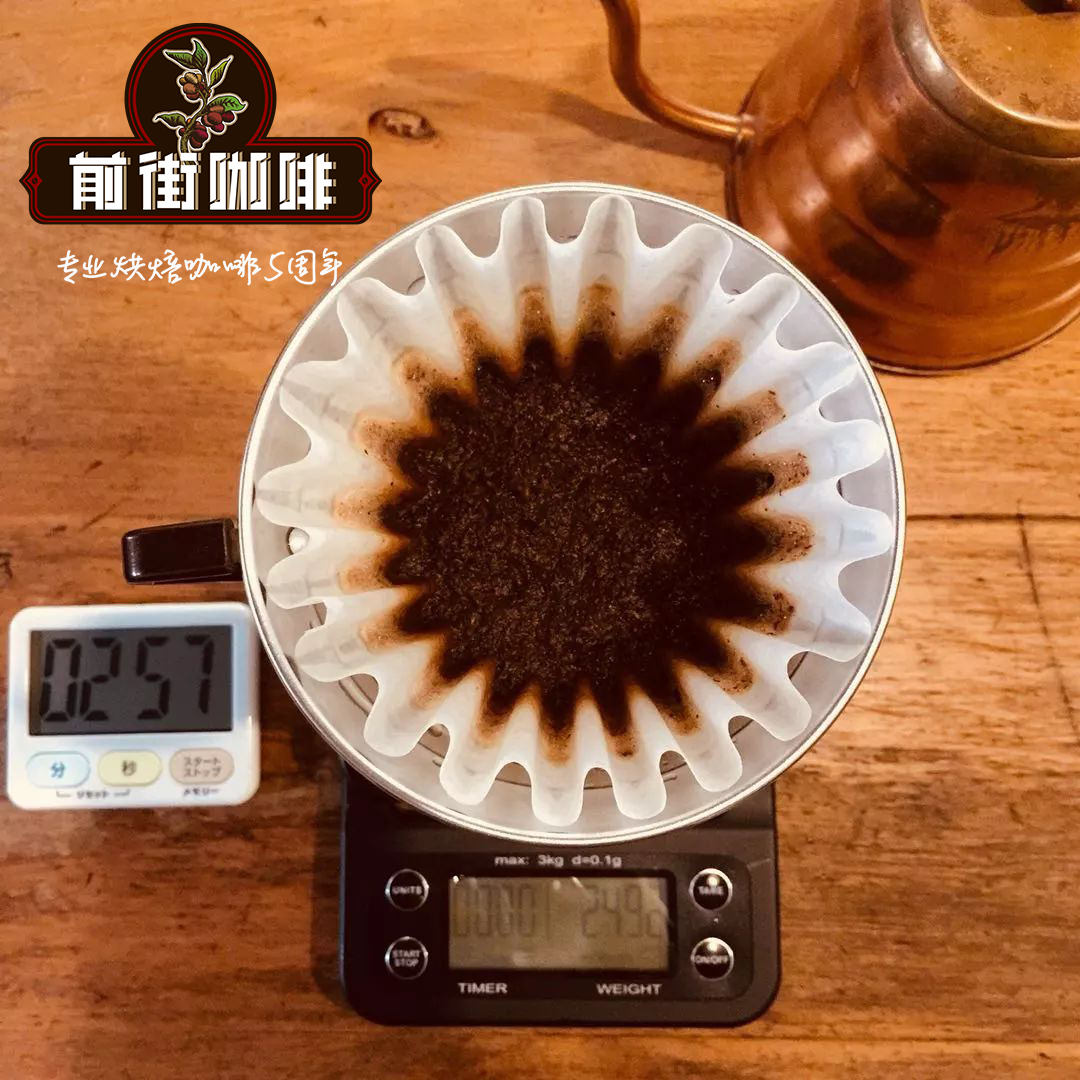Coffee beans suitable for hand flushing what coffee beans do you use? Ethiopian coffee, Gemma organic coffee.

Professional coffee knowledge exchange more coffee bean information please follow the coffee workshop (Wechat official account cafe_style)
Click to see more coffee beans suitable for hand brewing.
Ethiopia Gemma Akmanu Calendar Solar (Organic Certification)
Ethiopia Jimma Akmel Nuri natural (organic certificated)
Producing country: Ethiopia Ethiopia
Production area: Limu Kosa; Gemma Jimma
Producer: Akmanuri Akmel Nuri
Altitude: 1650-2050 m
Bean seed: Ethiopian native species Ethiopia Heirloom Varietals
Treatment: sun treatment; African scaffolding drying Natural,sun dried on raised beds
Harvest season: October-December
Certification: organic certification
Organic farm in Akmanuri Akmel Nuri, Ethiopia
Akmel Nuri, an Ethiopian coffee farmer, finally got his wish after saving for years and bought the farm in 2002. The farm is located in the Limu Kosa community of Jimma, Ethiopia. The primeval forest surrounds the farm and the environment is unique. Not only that, Akma uses organic farming (organic) to cultivate coffee trees in an effort to maintain ecological balance.
Usually in Ethiopia, we don't know the names of coffee farmers, and the farms of individual coffee farmers are too small to be processed in separate batches. Even Akma doesn't produce much, only 300 bags, but under The Coffee Collective's direct trade model, we finally know where and how the coffee comes from.
At first, The Coffee Collective was not interested in Akma's coffee because he used organic farming or obtained organic certification. It was simply that Akma's coffee was delicious. Generally speaking, the third wave of coffee roasters do not pay special attention to the so-called "fair trade" or "organic farming law". The price they pay is much higher than the fair trade price. for example, the price paid by The Coffee Collective to Akma is higher than 173% of the market price. Organic certification is quite luxurious in African countries, which is ideal but often not feasible in practice.
But on Akma's farm, even at 2000 meters above sea level, his coffee trees can grow to 2 or 3 meters high, which is amazing when it is only six to eight years old. The environment on the farm is almost like a primeval forest. Up to 2025 meters, the shade trees are still very dense, mixed with coffee trees. Akma's organic practice is to let the coffee grow as naturally as possible. Many old native coffee trees play the role of shade trees because they are very tall. From the outside, Akma's farm is more like a primeval forest than a coffee garden.
One of the advantages of tall shade trees is that they can't easily penetrate the hot morning sun to avoid sunburn of coffee fruits, and another advantage is that they leave enough room for air circulation in lower coffee trees to avoid the problem of dampness. this often happens when the shade tree is not high.
Akma uses a variety of ways to pursue his organic practice, organic composting, soil nutrient analysis, to grow coffee with a richer flavor, his hope: "to grow coffee in a way that conforms to nature, not against it."
Click to see more coffee beans suitable for hand brewing.
Important Notice :
前街咖啡 FrontStreet Coffee has moved to new addredd:
FrontStreet Coffee Address: 315,Donghua East Road,GuangZhou
Tel:020 38364473
- Prev

Suitable for hand-brewed coffee beans recommended in Ethiopia's Yega Sheffield Damorim producing area.
Professional coffee knowledge exchange more coffee bean information please follow the coffee workshop (Wechat official account cafe_style) Ethiopia Lim Teana sun treatment method AFCA third suitable for hand-brewed coffee beans ★ strawberries, passion fruit, wine ripe fruit, aftertaste delicate and charming coffee country: Ethiopian coffee producing area: Lim producer: Teana coffee variety: local
- Next

Coffee beans suitable for hand flushing what coffee beans do you use by hand? Ethiopian Limtega and Tula.
Professional coffee knowledge exchange more coffee bean information please follow the coffee workshop (Wechat official account cafe_style) suitable for hand-brewed coffee beans recommended Property Characteristics: farm features Name name: Tega and Tula Farm Taiga and Tula farms Region producing area: Limu Country country: Ethiopia Ethiopia Grade level: G3 Al
Related
- Detailed explanation of Jadeite planting Land in Panamanian Jadeite Manor introduction to the grading system of Jadeite competitive bidding, Red bid, Green bid and Rose Summer
- Story of Coffee planting in Brenka region of Costa Rica Stonehenge Manor anaerobic heavy honey treatment of flavor mouth
- What's on the barrel of Blue Mountain Coffee beans?
- Can American coffee also pull flowers? How to use hot American style to pull out a good-looking pattern?
- Can you make a cold extract with coffee beans? What is the right proportion for cold-extracted coffee formula?
- Indonesian PWN Gold Mandrine Coffee Origin Features Flavor How to Chong? Mandolin coffee is American.
- A brief introduction to the flavor characteristics of Brazilian yellow bourbon coffee beans
- What is the effect of different water quality on the flavor of cold-extracted coffee? What kind of water is best for brewing coffee?
- Why do you think of Rose Summer whenever you mention Panamanian coffee?
- Introduction to the characteristics of authentic blue mountain coffee bean producing areas? What is the CIB Coffee Authority in Jamaica?

